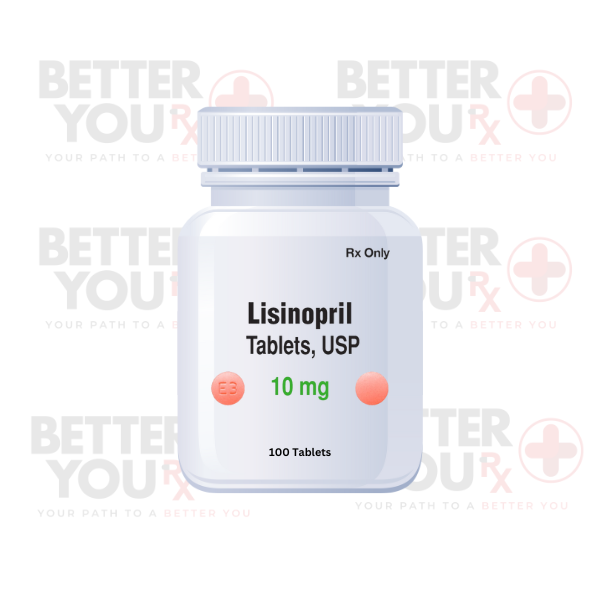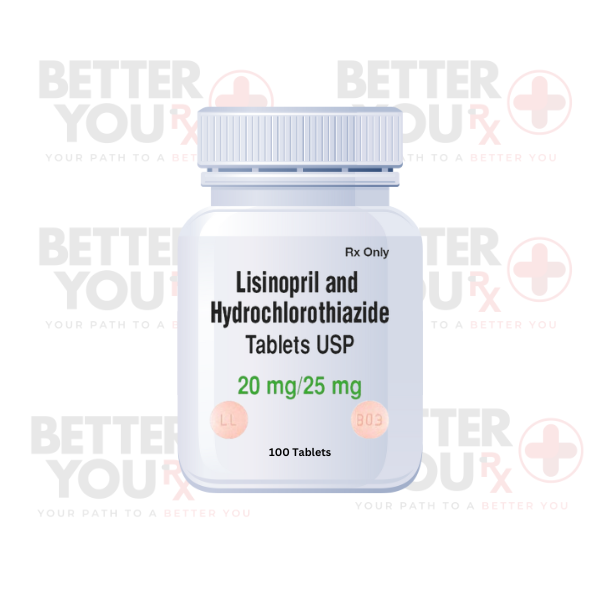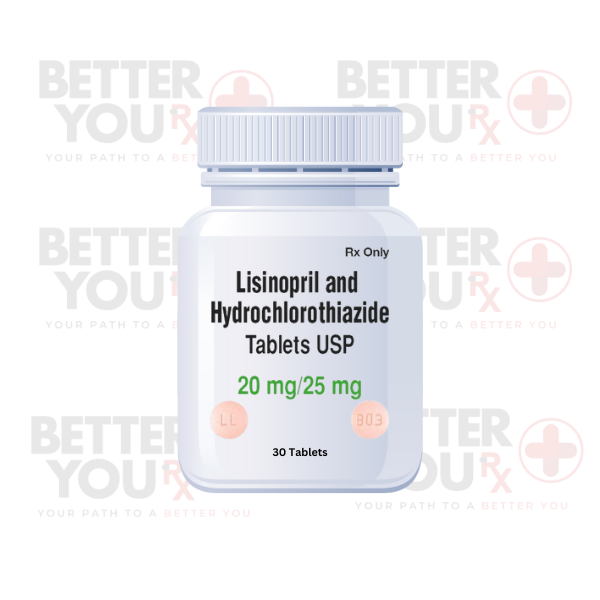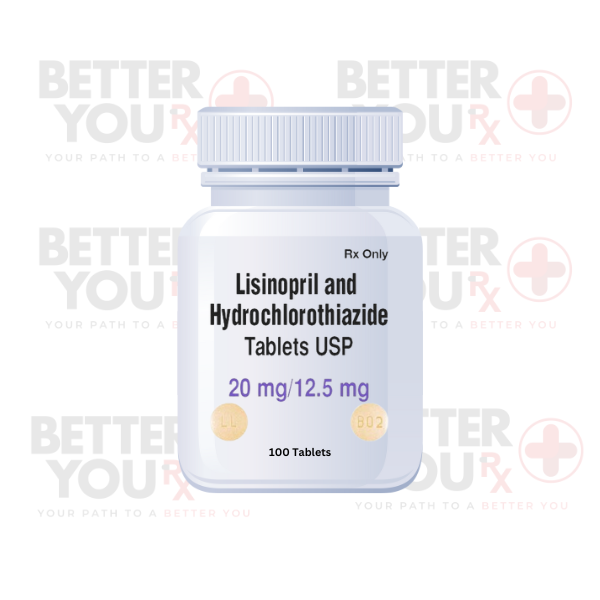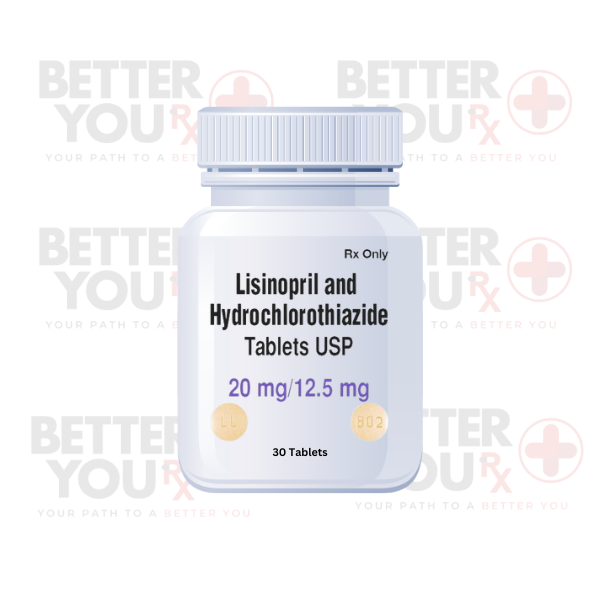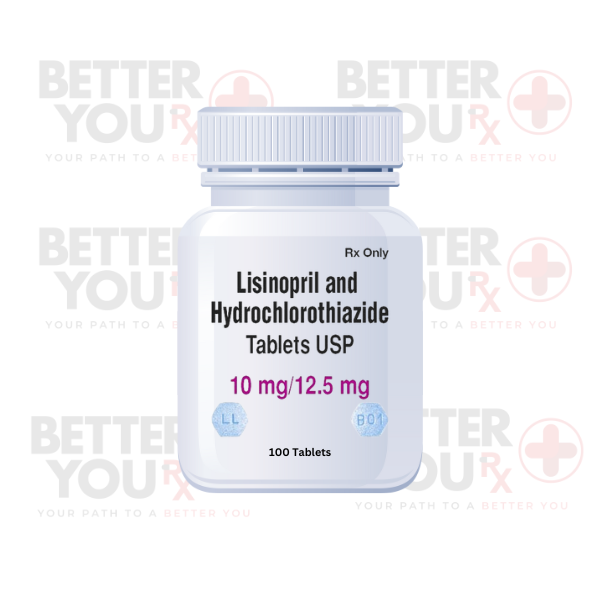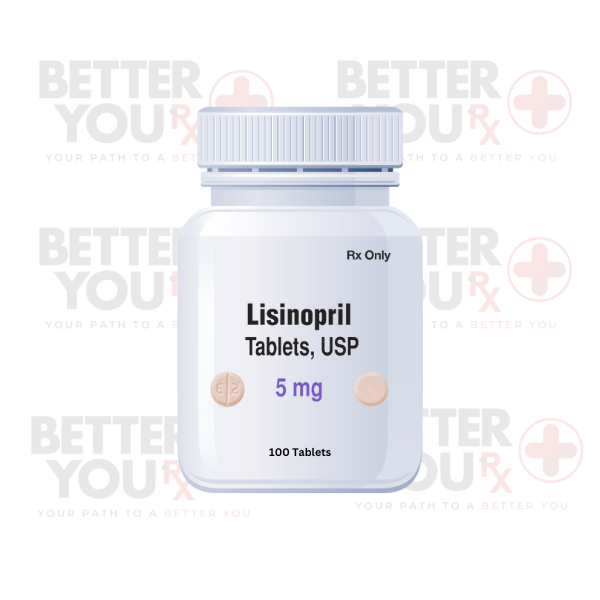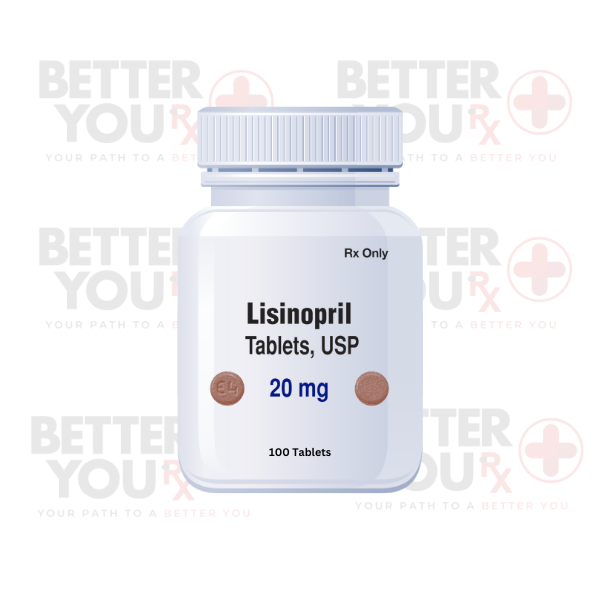Description
Lisinopril is an oral medication classified as an angiotensin-converting enzyme (ACE) inhibitor, primarily prescribed for the management of hypertension (high blood pressure) and heart failure. This medication works by inhibiting the conversion of angiotensin I to angiotensin II, a substance in the body that causes blood vessels to constrict. By preventing this conversion, lisinopril promotes the relaxation of blood vessels, resulting in lowered blood pressure and decreased strain on the heart.
Beyond its use in hypertension, lisinopril is also beneficial for individuals who have experienced heart attacks, as it helps improve survival rates and prevent further heart complications. This medication is often recommended as part of a comprehensive treatment strategy that may include lifestyle modifications such as diet, exercise, and weight management, which collectively enhance cardiovascular health.
Uses of Lisinopril
- Hypertension Management: Lisinopril is primarily used to treat high blood pressure, effectively reducing the risk of complications such as stroke and heart attack.
- Heart Failure Treatment: It is also utilized in the treatment of heart failure, helping to alleviate symptoms and improve the quality of life for affected patients.
- Post-Myocardial Infarction: Following a heart attack, lisinopril can aid in improving survival rates and preventing future cardiovascular events.
Benefits of Lisinopril
- Effective Blood Pressure Control: Clinical studies have demonstrated that lisinopril significantly reduces both systolic and diastolic blood pressure.
- Renal Protection: Lisinopril has been shown to provide protective effects on the kidneys, particularly in patients with diabetes, thereby reducing the risk of diabetic nephropathy.
- Once-Daily Dosing: The medication typically requires only once-daily dosing, enhancing adherence and convenience for patients.
Side Effects of Lisinopril
While lisinopril is generally well-tolerated, some patients may experience side effects, including:
- Dizziness or lightheadedness
- Cough (dry)
- Fatigue
- Headache
- Elevated blood potassium levels
Serious side effects, although rare, may include angioedema (swelling of deeper layers of the skin), severe hypotension, or kidney dysfunction. Patients should seek immediate medical attention if they experience difficulty breathing, swelling of the face or throat, or any other severe reactions.
How to Use Lisinopril
Lisinopril is taken orally, with or without food. It is important to follow the prescribing healthcare provider’s instructions regarding the dose and timing. Patients should take the medication consistently at the same time each day to maintain stable blood levels.
Safety Advice and Precautions
- Regular Blood Pressure Monitoring: Patients should regularly check their blood pressure to ensure the medication is effectively managing their condition.
- Monitoring Kidney Function: Kidney function should be assessed periodically, especially in individuals with pre-existing renal conditions.
- Drug Interactions: Inform healthcare providers about all medications, including over-the-counter drugs and supplements, to avoid potential interactions.
What if You Forget to Take Lisinopril?
If a dose is missed, it should be taken as soon as remembered. However, if it is close to the time for the next dose, skip the missed dose and continue with the regular dosing schedule. Do not double the dose to catch up.
Overdosing
In case of overdose, seek immediate medical assistance. Symptoms may include severe dizziness, fainting, and rapid or irregular heartbeat.
How to Store Lisinopril
Store lisinopril at room temperature, away from light and moisture. Keep it out of reach of children.
FAQs About Lisinopril
- How quickly does lisinopril start to work?
Many patients may notice a reduction in blood pressure within the first week of treatment, although it may take up to 4-6 weeks for full effects. - Can I take lisinopril if I am pregnant?
Lisinopril is not recommended during pregnancy due to potential harm to the developing fetus. Always consult a healthcare provider if you are pregnant or planning to become pregnant. - Is it safe to use lisinopril long-term?
Yes, lisinopril can be safely used long-term for many patients under the supervision of their healthcare provider.
Order Lisinopril Affordably Through Better You Rx
To ensure access to lisinopril and other essential medications at affordable prices, Better You Rx partners with reputable Canadian Pharmacy Affiliate affiliates. Our service is dedicated to providing you with the medications you need to effectively manage your health.
Call to Action
Take control of your hypertension today! Add Lisinopril to your cart on Better You Rx and benefit from a reliable approach to managing your blood pressure. With our pharmacy affiliate service, you can conveniently access quality medications that support your health journey. Don’t delay—add Lisinopril to your cart now and prioritize your cardiovascular well-being!
Disclaimer
This information is intended for educational purposes and should not replace professional medical advice. Always consult your healthcare provider before starting or stopping any medication, especially if you have pre-existing health conditions.

